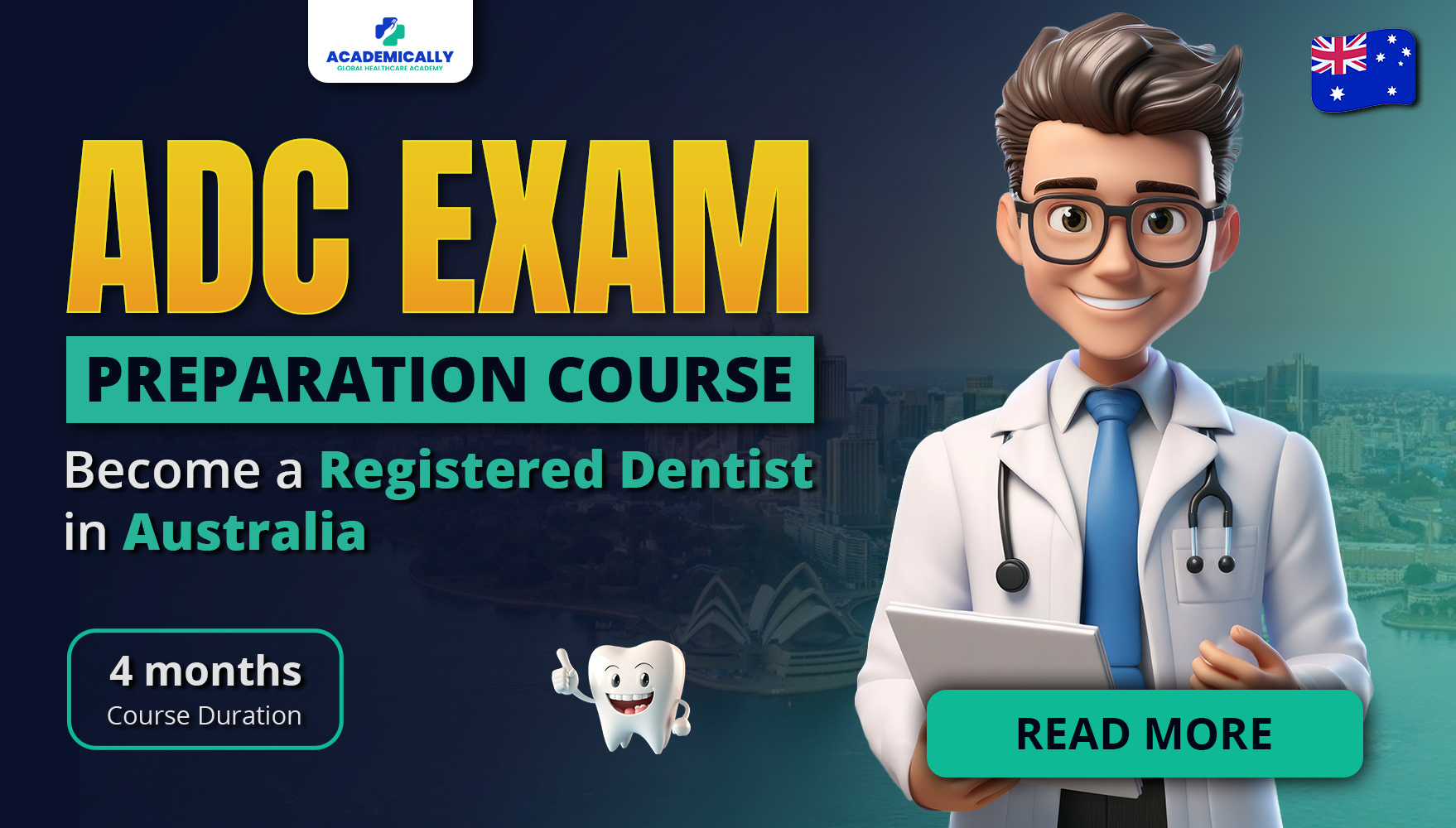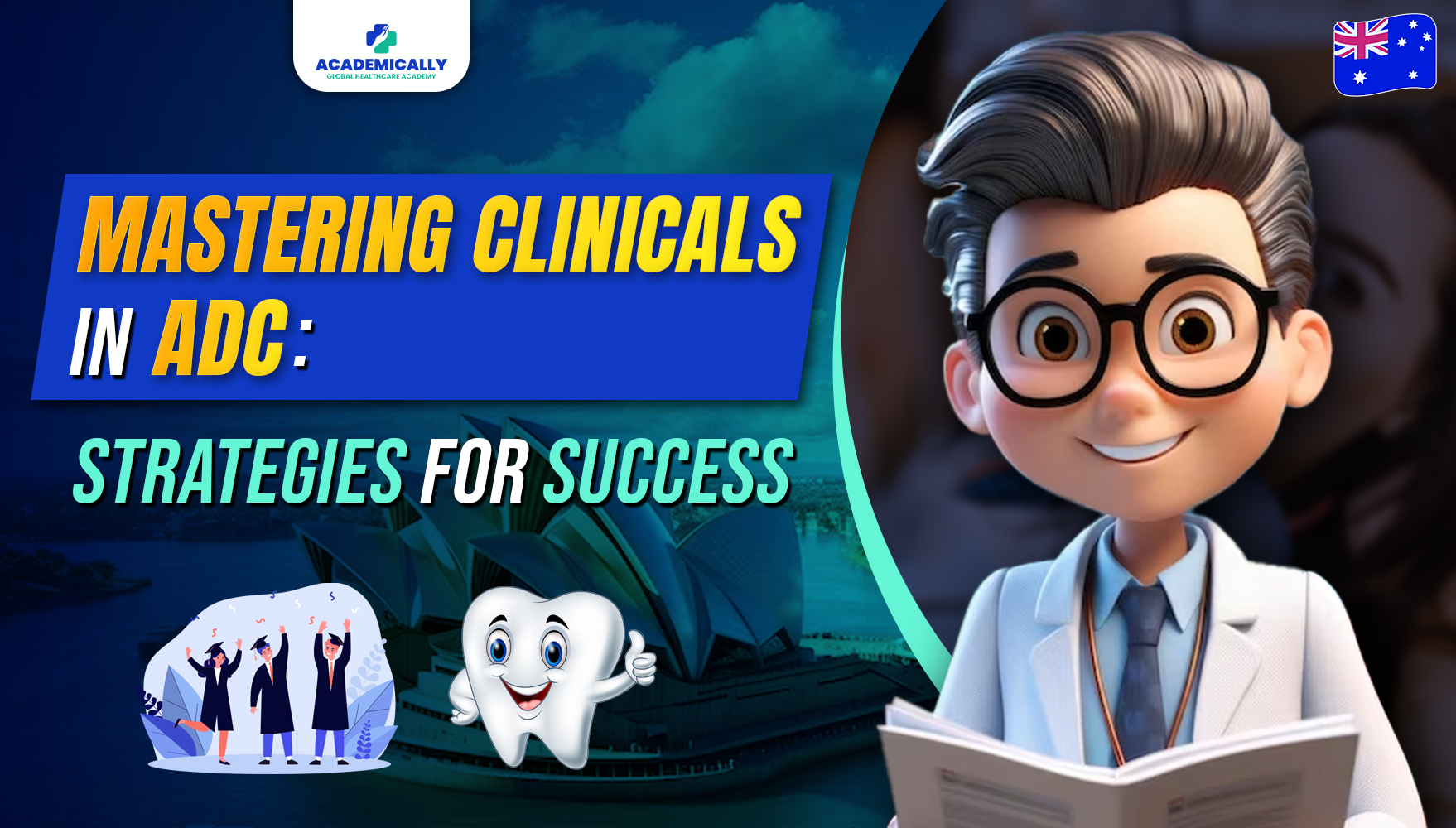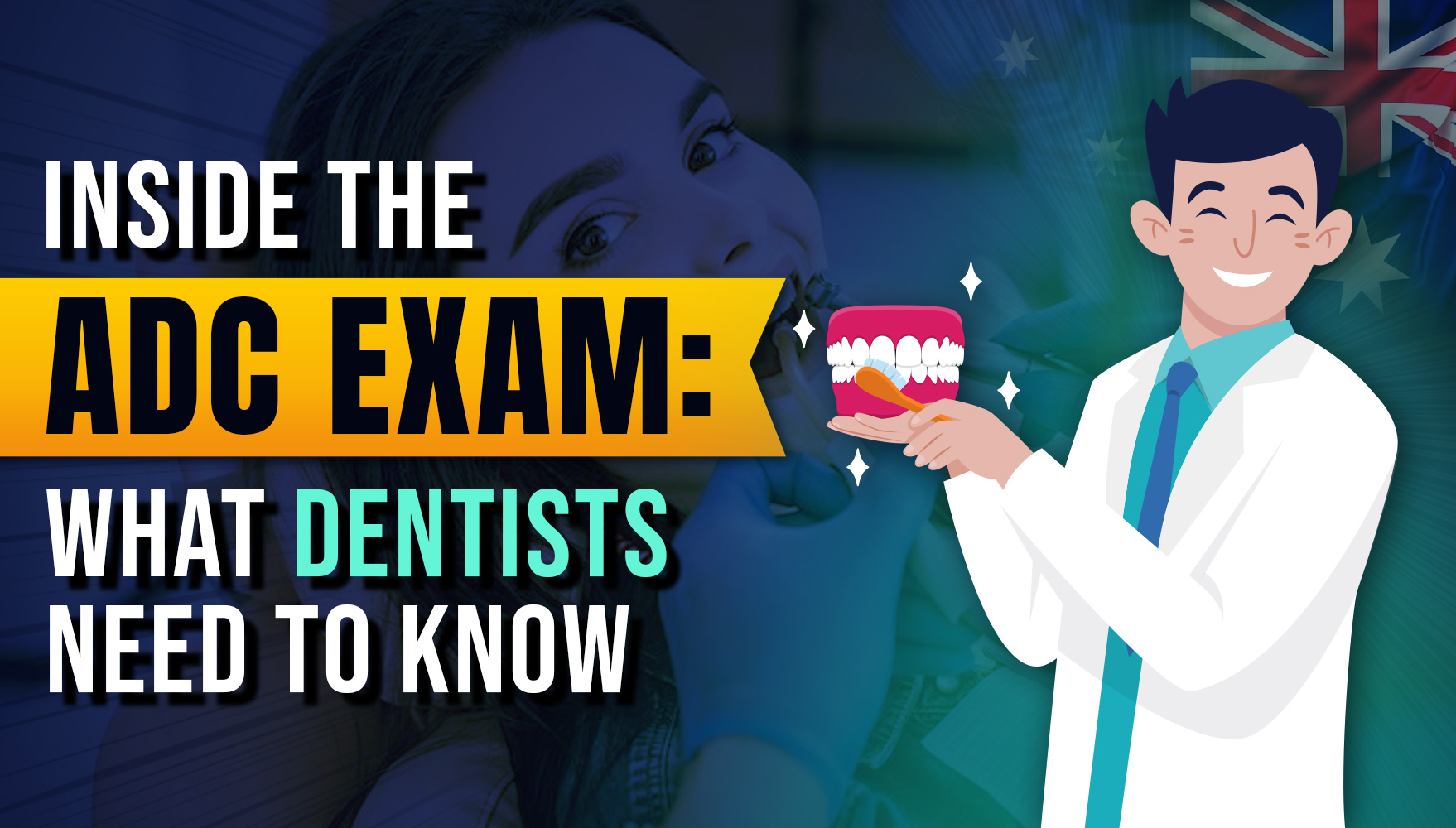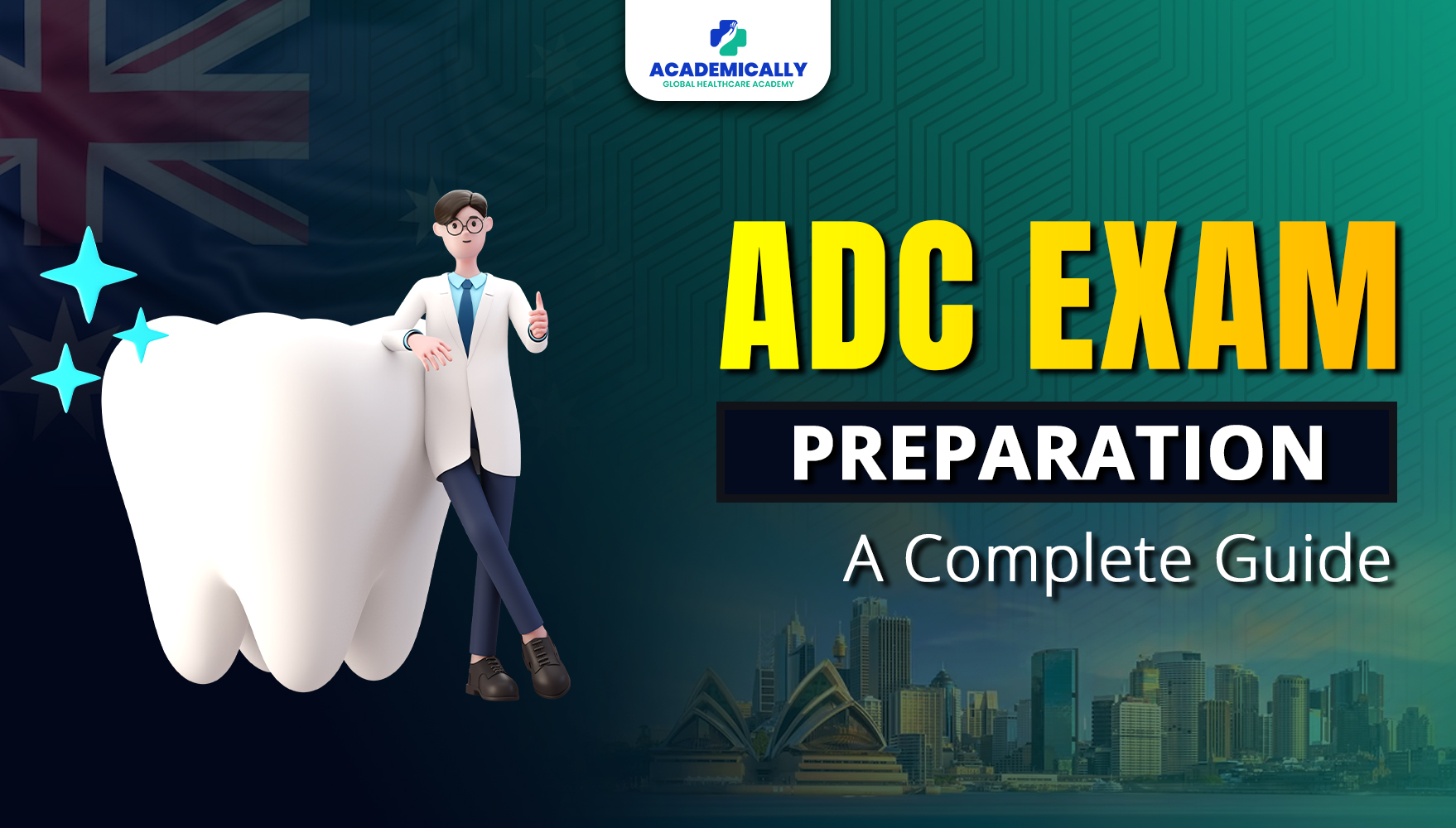
Understanding the ADC Examination
The ADC Examination consists of written and practical components designed to assess candidates' competence in various areas of dentistry.
The ADC clinical examination can be taken only after passing the ADC written examination.
The clinical component evaluates candidates' clinical skills, including diagnosis, treatment planning, and patient management, through simulated patient encounters and practical tasks.
Once you pass the clinical examination, you can apply for registration as a dentist in australia.
Content of the ADC Clinical Examination
The ADC exam evaluates candidates across various domains of dental practice to ensure they meet the standards required for safe and effective patient care. Here is an overview of the syllabus for the ADC Clinical Exam:
Technical Skills Day
During the technical skills day of the ADC Examination, candidates are evaluated on their ability to perform various dental procedures with precision and proficiency. This component focuses on providing evidence-based, patient-centered care, emphasising the importance of maintaining patient comfort and safety throughout the procedures. Here's a breakdown of the specific areas covered.
Conservation
- Conservation dentistry focuses on preserving and conserving natural tooth structure while addressing issues such as caries (tooth decay) or minor tooth damage.
- Candidates may be required to demonstrate proficiency in cavity preparation, dental restoration placement (e.g., composite fillings), and dental bonding.
Endodontics
- Endodontics deals with the diagnosis and treatment of dental pulp and periapical tissues. This includes root canal therapy to save infected or damaged teeth.
- Candidates may need to demonstrate their ability to perform root canal procedures, including proper instrumentation, cleaning, shaping, and obturation of the root canal system.
Fixed Prosthodontics
Fixed prosthodontics involves restoring or replacing missing teeth using fixed dental prostheses, such as crowns, bridges, or implant-supported restorations.
Candidates may be evaluated on their skills in tooth preparation for crowns or bridges, impression-taking, and fitting and cementation of fixed prosthetic restorations.
Clinical Skills Day
The clinical skills day of the ADC Examination focuses on assessing candidates' ability to gather clinical information, make accurate diagnoses, develop comprehensive treatment plans, and execute clinical procedures effectively. This component evaluates a range of professional competencies critical to dental practice:
Clinical Information Gathering
- Candidates are assessed on their ability to gather comprehensive clinical information through patient history-taking, physical examination, and diagnostic tests.
- This includes obtaining relevant medical and dental histories, conducting thorough intraoral and extraoral examinations, and ordering appropriate diagnostic imaging or laboratory tests.
Diagnosis and Management Planning
- Candidates must demonstrate proficiency in formulating accurate diagnoses based on clinical findings and diagnostic tests.
- They should develop evidence-based treatment plans tailored to the patient's needs, considering factors such as oral health status, patient preferences, and treatment goals.
Clinical Treatment and Evaluation
- Candidates are evaluated on their ability to execute clinical procedures effectively and efficiently, adhering to established guidelines and standards of care.
- This includes performing dental treatments such as restorative procedures, periodontal therapy, oral surgery, and preventive interventions.
- Candidates must also demonstrate competence in evaluating treatment outcomes, monitoring patient progress, and adjusting treatment plans.
Key Strategies for Mastering Clinicals in the ADC Examination
Understand the Examination Format: Familiarise yourself with the structure and format of the clinical component of the ADC Examination. Understand the types of cases and tasks you may encounter and the criteria used for evaluation.
Practical examinations are held over two consecutive days and consist of:
- A technical skills day
- A clinical skills day
A technical skills day covers the provision of evidence-based patient-centred care and may include tooth preparation and /or restoration related to:
- Conservation
- Endodontics
- Fixed prosthodontics
A clinical skills day covers the demonstration and assessment of the professional
Competencies like:
- Clinical information gathering
- Diagnosis and management planning
- Clinical treatment and evaluation
ADC Practical examination blueprint
Domains | Examination Day | Method of Assessment |
| Clinical information gathering | Clinical skills day | OSCE (objective structured clinical examination) |
| Diagnosis and management planning | Clinical skills day | OSCE (objective structured clinical examination) |
| Clinical treatment and evaluation | Technical skills day | OSCE (objective structured clinical examination) and Technical Task |
Practice Clinical Scenarios: Use various clinical scenarios to simulate the examination environment. Focus on common dental procedures such as restorative dentistry, prosthodontics, endodontics, and oral surgery. Manage your time efficiently and prioritise patient safety and comfort.
Develop Clinical Reasoning Skills: Hone your clinical reasoning skills by critically analysing patient cases and developing evidence-based treatment plans. Understand and apply the principles and guidelines for different dental procedures to clinical scenarios.
Enhance Communication Skills: Effective communication is essential in dentistry, especially when interacting with patients and colleagues. Practice clear and concise communication, listen actively to patients' concerns, and convey information in a patient-friendly manner.
Focus on Clinical Competencies: Master essential clinical competencies for dental practice, including accurate diagnosis, treatment planning, infection control, and technical skills. Continuously seek opportunities to refine and improve your clinical techniques.
Tips for the Exam Day to Ensure Success
- Arrive Early- Plan your journey to the exam centre and aim to arrive early. This will give you plenty of time to familiarise yourself with the surroundings, complete any registration formalities and mentally prepare for the exam.
Also, the practical examinations for all ADC are held at the ADC Examination Centre, Level 6, 469 La Trobe Street, Melbourne, VIC, 3000. For further information, you can contact them at 03 9657 1777.
- Stay Hydrated- Ensure your health is at its best- stay hydrated and have a nutritious meal to give your best attempt.
- Dress Comfortably- For optimum cognitive performance, ensure your dress doesn't become a hurdle. Wear comfortable clothing and shoes that allow you to move freely and comfortably during the exam. Dress in layers to accommodate temperature changes in the exam room.
- Review Exam Instructions- Read and understand the instructions carefully before starting each station. Pay attention to any specific requirements or guidelines examiners provide to ensure you follow them correctly.
- Manage Your Time- Pace yourself throughout the exam to ensure sufficient time for each station. Use your time wisely and avoid spending too much time on any task. If you encounter a challenging scenario, quickly decide and move on to the next task.
- Stay Calm and Focused- Manage exam-related stress and anxiety by practising relaxation techniques such as deep breathing or visualisation. Stay focused on the task and avoid being distracted by negative thoughts or self-doubt.
- Communicate Effectively- Maintain clear and effective communication with standardised patients, examiners, and other candidates during the exam. Listen attentively, ask clarifying questions when necessary, and ensure you convey information clearly and confidently.
- Stay until the End- Complete all stations and tasks within the allocated time frame. Make sure to complete all stations; every opportunity to demonstrate your skills and knowledge counts towards your overall performance.
Final Words
A perfect blend of these strategies and tips will help you achieve sure-shot success. Remember, the exam focuses on testing your clinical and analytic knowledge more than your theoretical one. Trust in your preparation, stay focused, and approach the exam with confidence and determination.
To ensure success in your attempt, get help from experts, such as mentors or professional coachings.
Fill up this form for a free one on one counselling session.






